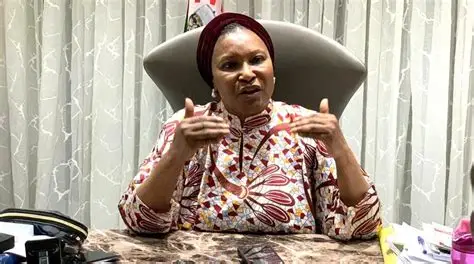273
By Lizzy Chirkpi
Senator Ireti Kingibe, the lawmaker representing the Federal Capital Territory, has condemned Nigeria Police operatives for allegedly opening fire on innocent residents in Karsana, a suburban community on the outskirts of Abuja.
She described the incident as both unacceptable and indefensible, calling it a gross abuse of power and a tragic example of state-sponsored trauma.
“For bullets to be fired at civilians merely trying to salvage their lives and dignity is both unacceptable and indefensible. This is not law enforcement; it is state-sponsored trauma,” the Senator said.
According to eyewitnesses, the demolitions began in the early hours of Monday July 21, 2025 , with bulldozers rolling in under the protection of heavily armed security forces.
Many residents, still in shock and disbelief, scrambled to save what little they could from the rubble. It was during this confusion that a group of residents began a peaceful protest, calling for a halt to the operation and a dialogue with government authorities. Instead, they were met with force.
“What did we do to deserve this?” asked Fatima Abdulraheem, a 52-year-old mother of four who lost her home. “We begged them, we cried, and they answered us with guns. They are erasing our lives like we are nothing.”
Senator Kingibe, visibly disturbed, lamented the growing trend of government agencies carrying out demolitions without adequate engagement, compensation, or provision of alternatives for affected families.
“We cannot build a just society by bulldozing communities without compassion or firing at citizens instead of listening to them,” she declared. “The pain, fear, and indignity inflicted on these residents is something no human being deserves, least of all in our nation’s capital.”
She called for an immediate investigation into the incident, demanding accountability from those responsible as well as adequate medical care and compensation for victims.
“The government must remember that its duty is to protect, not persecute. We must rethink this approach to urban development that treats our people as obstacles instead of stakeholders.”
Meanwhile, some civil society organizations and human rights activists have began to weigh in, decrying what they describe as a creeping militarization of public policy enforcement in the FCT.
“This is not just about Karsana,” said rights advocate Chukwuemeka Ogbonna. “This is a warning to all vulnerable communities in Abuja: you can be erased overnight, and no one is safe if this precedent holds.”
As the dust settles on the shattered homes and broken lives in Karsana, one thing remains clear: this is no longer just a policy issue it is a moral crisis. And as Senator Kingibe put it bluntly:
“I will not stay silent while those I represent bleed. Abuja must not become a place where the poor live in fear of the very government meant to serve them.”



